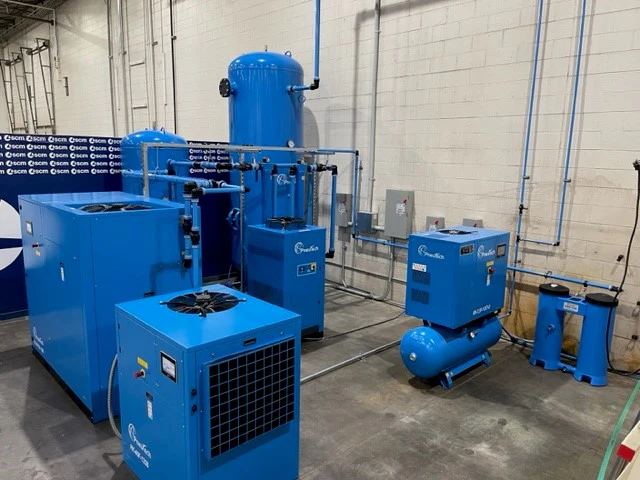Integrated dryer solutions are crucial in ensuring consistent air quality across various industries. These systems combine multiple functions in a unified platform to manage and improve the air treatment process. By integrating different stages of the drying and filtration process, industries can achieve a higher level of control over the moisture, particles, and contaminants in the air, which is critical for maintaining product quality, operational efficiency, and regulatory compliance. One of the primary benefits of integrated dryer solutions is their ability to optimize the drying process by maintaining consistent temperature and humidity levels. This consistency is vital for industries that rely on precise environmental conditions, such as pharmaceuticals, food processing, electronics manufacturing, and chemical production. Any fluctuation in moisture content or air quality can lead to defects in products, inefficiencies in production, or contamination that may render goods unsafe for consumption or use. Integrated systems help mitigate such risks by automatically adjusting parameters to ensure stable conditions throughout the operation.

In many industries, air quality plays a significant role in equipment longevity and performance. Contaminants in the air, such as dust, water vapor, or oil, can negatively impact machinery, causing corrosion, wear, and malfunctions. Integrated dryer systems are designed to remove these harmful elements by using a combination of filters, dryers, and condensate management techniques. This ensures that the air entering sensitive equipment is free of contaminants, which prolongs the lifespan of machinery and reduces maintenance costs. Moreover, go by incorporating energy-efficient technologies, these systems help reduce operational costs, which is essential in industries with high energy demands. Environmental factors also come into play when considering air quality in industrial settings. Many businesses face increasing pressure to minimize their environmental footprint, particularly when it comes to energy consumption and emissions. Integrated dryer solutions that are designed with energy efficiency in mind help reduce greenhouse gas emissions, lower energy usage, and meet environmental regulations. With advanced control systems, these solutions can adjust their operations to optimize energy use, thereby achieving a balance between maintaining air quality and reducing environmental impact.
In addition to the technical benefits, integrated dryer solutions can enhance operational efficiency by reducing the need for manual intervention. Automation capabilities allow these systems to monitor air quality parameters in real-time and make adjustments as needed, minimizing human error and reducing the workload on staff. This not only ensures a more streamlined operation but also improves safety, as operators can focus on more critical tasks without the constant need to oversee the air quality management system. Furthermore, the flexibility of integrated dryer solutions means they can be tailored to meet the specific needs of different industries and applications. Whether the requirement is for high-flow air treatment, precise humidity control, or removal of specific contaminants, these systems can be customized with a range of components to address unique operational challenges. This adaptability makes integrated dryers an essential investment for industries seeking to maintain consistent air quality, enhance productivity, and comply with stringent environmental and safety standards.


